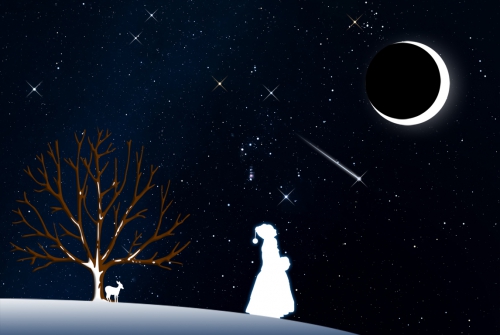
Stargazing Nights - CLOSED
- Where:
- Frosty Drew Observatory and Science Center
- When:
- Fri, Jan 26, 2024 - CLOSED
- Cost:
- $5 Suggested Donation Per Person
Welcome to the Frosty Drew Observatory and Science Center's Stargazing Nights! Every Friday night (weather permitting) we open our Observatory, Science Center, Sky Theatre, and telescopes to the sky and offer free stargazing and astronomy to anybody interested in observing with us.
Tonight, as it appears, in a repeat of 2023, we are just clouded out endlessly. The forecast is calling for overcast conditions with fog and light rain. Considering that the full Moon occurred yesterday, the presence of the bright 99% waning gibbous Moon would have out-shined nearly everything in the sky aside from the planets and bright stars. But at this point, we’ll take any clear night, even if the bright gibbous Moon is out. Regardless, due to the dismal onsite conditions we will keep the Observatory and Science Center closed, again. We will make another attempt at opening on Friday, February 2, 2024 for our regular Winter Stargazing Nights event. Clouds begone!
Be sure to subscribe to the Frost Drew Observatory mailing list and follow us on Instagram to receive status updates about our Stargazing Nights program and more.
Preparing for Your Visit:
Check out our page on Visiting Frosty Drew Observatory to learn more about what to expect at the Observatory and better help you prepare for your visit.
How to Dress for Winter Conditions: The Frosty Drew Observatory is not climate controlled, and the temperature inside the dome need to match the outside air temperature for a stable telescopic view. Frosty Drew Astronomy Team members dress in layers during the winter and for a very good reason. You should consider doing the same. Please read Dressing for All-Night Winter Stargazing to familiarize yourself with adequate dressing measures.
Please note that we do not allow any white lights on our campus or in Ninigret Park from dusk - dawn, with the exception of low beam headlights while in motion. This is to ensure an equally awesome view of the night sky for all and to allow for the use of light sensitive astronomical equipment. Learn more about why we have this requirement in The Red Light District.
